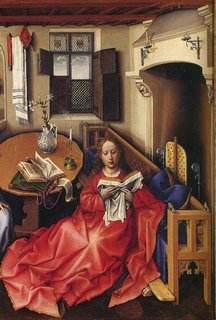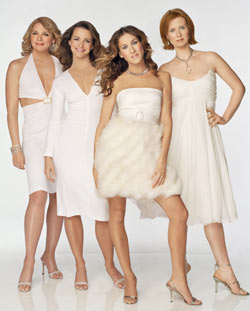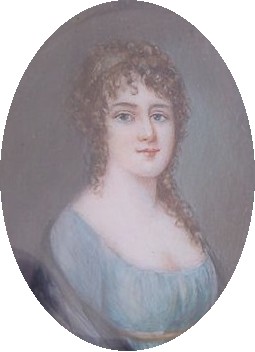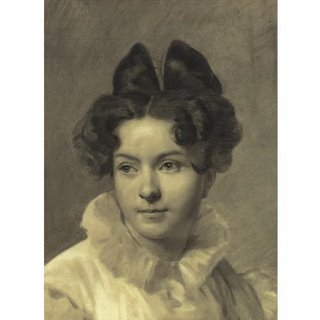
There were four-and-twenty virgins come down from Inverness


There were four-and-twenty virgins come down from Inverness
 First, a quick apology for the inherent bias in this question. It’s so unfair, yet I’ve noticed that readers who complained about too much sex in my books always castigated the heroine. “Ladies didn’t do that during the Regency” was a comment was directed at a heroine who dared have sex with her husband.
First, a quick apology for the inherent bias in this question. It’s so unfair, yet I’ve noticed that readers who complained about too much sex in my books always castigated the heroine. “Ladies didn’t do that during the Regency” was a comment was directed at a heroine who dared have sex with her husband.
OK, I won’t debate that one 🙂 but these readers have a point, skewed as it is. Historically, women paid the highest consequences for sex, biological and social.
I love SEX AND THE CITY. In all the sexual exploration the four main characters go through, they are searching for something, even if they’re not sure what it is. And when they find it, it’s LOVE. BUT I think it’s dodgy to translate their attitudes to women of the early 19th century. Not that they didn’t have sex–and sometimes outside the rules–and sometimes enjoying it! 🙂 But they were living and loving in a different world, with different stakes.
I admit to having trouble with the Regency heroine who experiments with sex lightly. With the heroine who keeps insisting to herself and everyone else that the hero is a loathesome jerk and the last man on earth she’d ever marry, yet repeatedly has sex with him without ever worrying about social disgrace or pregnancy or destroying her sisters’ chances of making good marriages. Such heroines usually strike me as some combination of needy, confused, selfish or just TSTL.
Yet I love so many sexy Regency era romances.
Things that mitigate the “Lydia Bennet” factor: marriage of convenience, no reputation to lose, supposed infertility (though possibly reversible!), birth control (some forms existed, but it has to make sense that the characters would know about and use it). And emotional commitment.
There’s also this mysterious thing: “heat of the moment”. Sometimes it works for me, sometimes it doesn’t. I’ve written this whole post and I’m still not sure how some authors make me feel that it really is the right moment for the characters to go at it, and why sometimes it just feels too early. Is it just incredibly sensual writing? Or deep enough characterisation that I feel the love even if the characters aren’t fully aware of it?
Maybe part of it is that I want some buildup.
What do you think? When has a heroine gone over from being human and vulnerable to TSTL in matters of sex? What makes “heat of the moment” work, or not? Which authors do you think handle this the best?
Elena
LADY DEARING’S MASQUERADE
www.elenagreene.com

I am finishing up my revisions for my Governess and Marquess story, now titled Born To Scandal, due today, so I’m recycling an early blog of mine. It first appeared in June of 2006 (Have we really been doing this blog for so long?), but my thoughts about Regency Heroines are much the same.
Here’s the recycled blog:
Several weeks ago when I had the good fortune to join Risky Regencies (this was an early blog!), I prosed on forever about Regency heroes, fictional and those appearing on cover art (not to mention GB*Gerard Butler*). It is time I spoke about Regency heroines.
When I conceive a story in my head it almost always starts with the hero. Heroes are so much easier for me. Apart from the obvious reason that I love to fantasize about dishy Regency guys, I think it is because the men in those times were able to lead such interesting lives, while the women had very few options, unless they were willing to risk social ostracism or give up on respectability altogether and live in the demimonde.
In some ways I love to explore women who were willing to risk being shamed (Morgana running a courtesan school in A Reputable Rake, for example; Emily gambling in The Wagering Widow. I like even more to imagine what life would be like for those women outside of respectable society (Maddie, the ruined girl, in The Mysterious Miss M). My next Mills & Boon features a singer as the heroine (that would be Innocence and Impropriety).
 All of these heroines require a mindset quite different from today’s woman, and it is sometimes hard to find that point where the modern reader can identify with the Regency woman’s predicament. Why be afraid you are going to wind up a prostitute? the modern woman might say. Why not just get a job?
All of these heroines require a mindset quite different from today’s woman, and it is sometimes hard to find that point where the modern reader can identify with the Regency woman’s predicament. Why be afraid you are going to wind up a prostitute? the modern woman might say. Why not just get a job?
The reality was, the Regency woman could not just get a job. She had to have references, even for such lowly positions as house maid or shop girl. And once ruined, any respectable employment was denied her.
There are plenty of weak, victim-like Regency heroine stereotypes – governesses (writing one of those now–but not stereotypical!!), servants of any sort, impoverished vicar’s daughters, ladies companions, abused wives – but I think today’s reader wants the heroine to be strong, not a victim. I truly believe there have been strong women in every era of history, certainly in the Regency as well. I like to explore how women of the time period rose above their constraints and refused to be victims.
You know what else? It is hard finding reasons for Regency heroines to engage in “intimacies” with those hunky Regency men. I think the Regency woman’s mindset about sex had to be quite different from our own. She’d worry about pregnancy each and every time, no doubt. No respectable man would want a society girl if she went and had sex with another guy first.
I’m rambling because I need to write proposals for my next two books and I don’t know who the heroines will be! My next Mills & Boon has a marquess for the hero (that would be The Vanishing Viscountess). I want to devise a strong heroine for this hero, whom I know down to the birthmarks on his—
(nevermind)
So! What kind of Regency heroines do you all like the best? Which ones are you tired of? Do you want that sexy read or doesn’t it matter?
Cheers!
Diane
(expect a brand new episode next week!)
Shutting the bedroom door. A euphemism in itself, it means that Nasty Sex Stuff is about to take place offstage in a book and the reader is shut out of the fun.
But not necessarily. As someone who has received the dubious honor of being accused of having both not enough sex in her books or too much (sometimes in reference to the same book) I consider myself something of an expert on when and how to shut the door. But I’m not convinced the door is ever truly shut.
So why end a chapter or section on a hook where it’s obvious what’s going to happen and then not follow through? It’s all to do with rhythm and pacing. I’m not a subscriber to the bang-bang-bang (literally?) school of writing—the theory that you have to establish and maintain a fast pace throughout the book. In very simplistic terms, it’s the difference between listening to disco and classical. You need a variety of shading and tempos; you need fast-paced excitement, slow reflection, and all points between.
It’s also about the relationship you’ve established with the reader. Have you hooked them? Is the reader willing to follow along, to be led where you want them to go; that your style and story have established trust with the reader. If you decide to leave something implied but not stated, the reader should trust you enough at that point to keep going, to imagine for herself what happens at that point. Even though it’s a romance and the love scenes are crucial to the genre, trust your reader enough to vary the amount of detail you apply to each one.
And trust your reader enough to let her enter the bedroom without you, if she wishes. That door never really closes, does it?
Here’s an excerpt from Improper Relations, which a reader told me was one of the sexiest things she’d ever read. She said it was the oyster that sealed the deal.
“Is this usual in marriage? Is everyone like this?”
He kisses me as if to stop my mouth. I am learning his kisses, their variety and hidden messages.
“I hope so,” he says as we come to the top of the stairs and he kicks the bedchamber door open.
Briefly, before I forget everything but Shad, I remember that soon Ann and I shall have the opportunity to compare husbands.
****
The next morning I am none too pleased to find that Shad has left early to breakfast with Beresford, for he and his lady came back to town late the night before. It’s raining—it has rained most of the night. During one of Shad’s half-hour regenerations (and that one was indeed half an hour for we had indulged ourselves mightily) we lay quietly and listened to the hiss of falling rain from the warm nest of the curtained bed. Beneath my cheek, my face pillowed on his chest, I heard the beat of his heart.
“Milady, the Countess of Beresford is downstairs,” the unpleasant Withers announces just as I’m wrapping myself up in the bedclothes to sleep some more.
“At this hour?”
She sniffs in reply and picks an oyster shell from the coverlet.
A reminder–The Malorie Phoenix is 99 cents for Nook and Kindle!